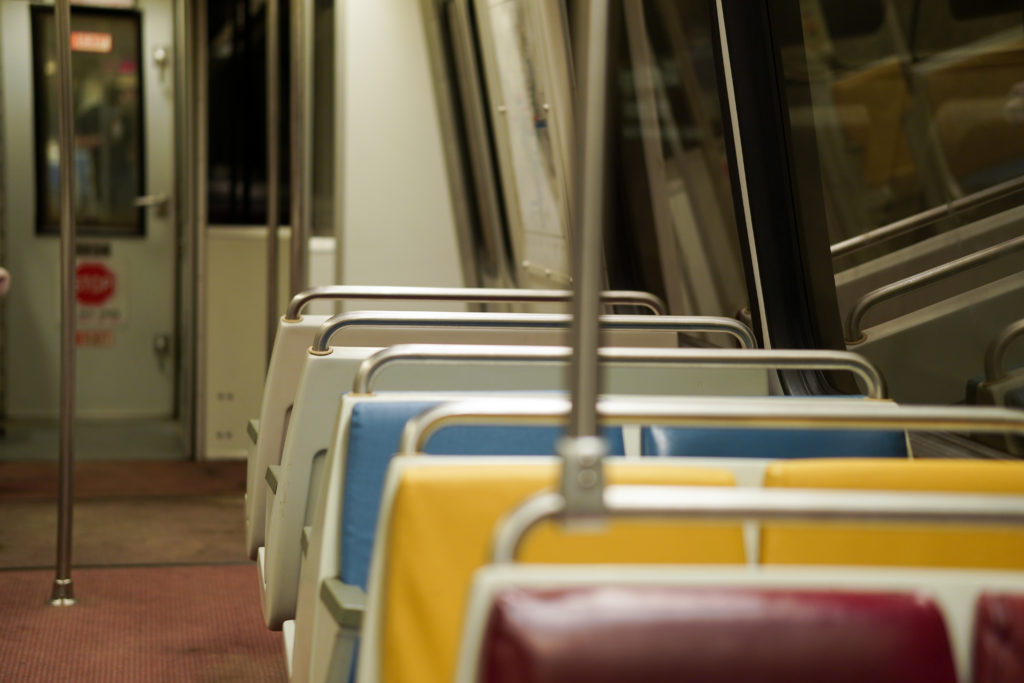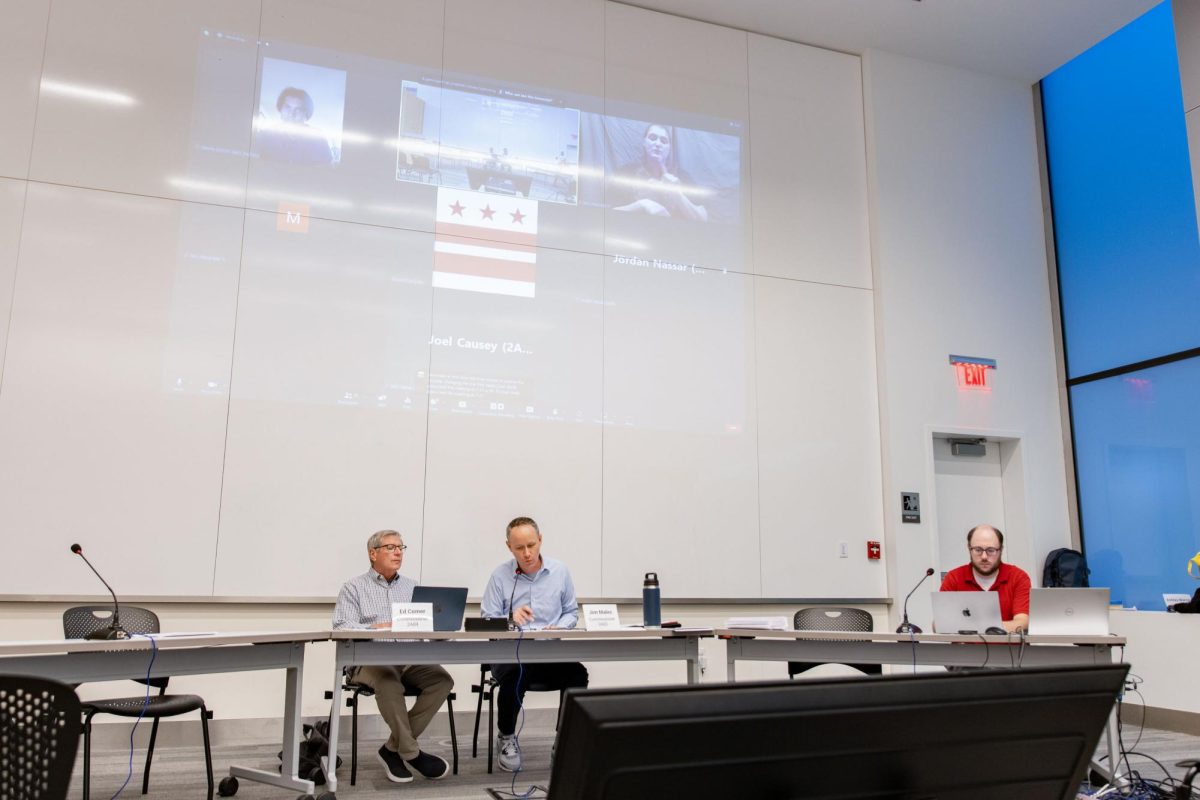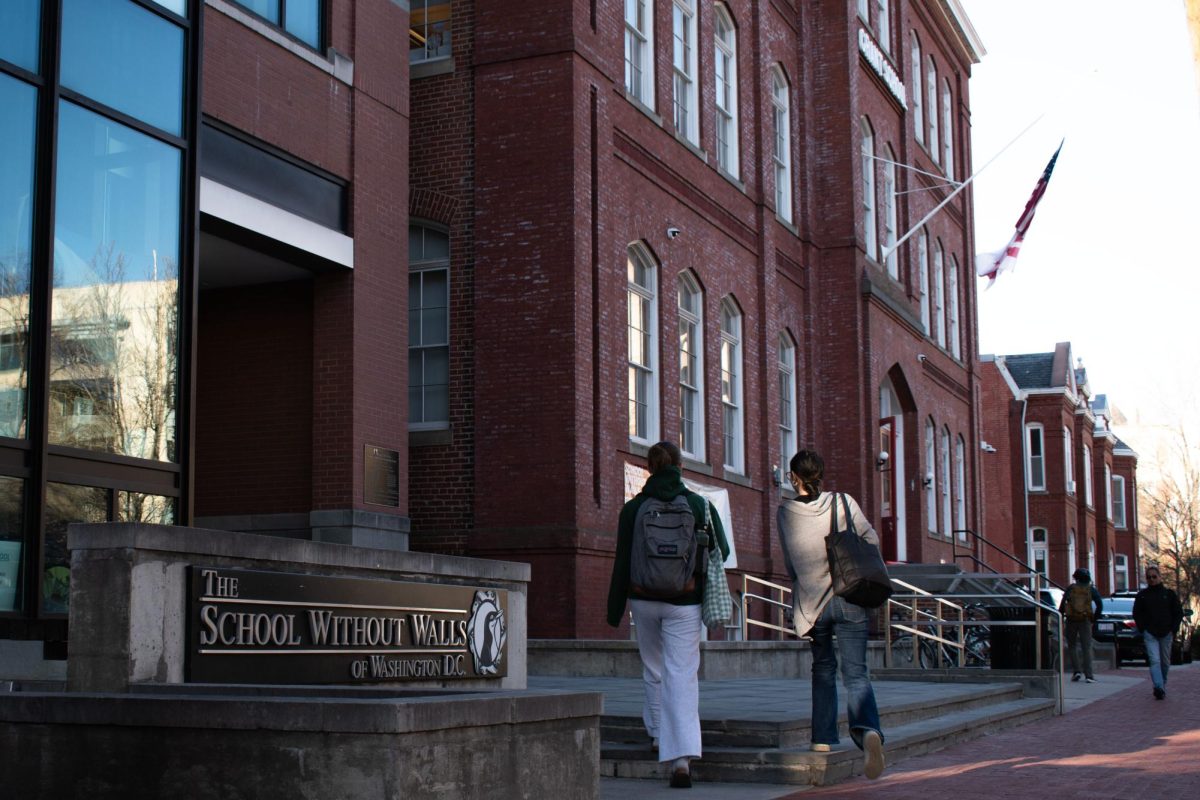As commuters continue to avoid public transportation amid the pandemic, the Metro is anticipating financial shortfalls and dramatic changes in its operations.
Commuters and D.C.-area students alike are evading the enclosed Metro cars due to remote work and fear of COVID-19 infection – the Metro currently sees 12 percent of its pre-pandemic ridership, according to the Washington Metropolitan Area Transit Authority. Students said Metro’s struggle to stay afloat during the pandemic could disfigure their travel routines in months ahead.
Earlier this month, the Metro Board of Directors approved a proposal that cuts $212 million of the agency’s 2020 operating budget if WMATA doesn’t receive more federal support by the end of 2020. Metro’s $767 million in CARES Act funding expired in July, and officials are preparing to slash nearly half of its $467 million yearly budget as revenue continues to slip away.
Usually, the Metro transportation system is bustling with commuters, second only to the New York City subway. But ridership has fallen by nearly half a million daily entries during the pandemic – two thirds of Metro’s average – and revenue has decreased by 90 percent on some lines.
“There’s no need to have a car in the city because the Metro pretty much brings you everywhere. I rely on it pretty heavily. If we didn’t have it, I don’t think we’d be the city that we are.”
WMATA initially cut service to curb the spread of COVID-19 but failed to rebound with its usual flock of riders when it fully reopened earlier this month.
WMATA General Manager and CEO Paul Wiedefeld said at a special board meeting Friday that the organization may have to lay off as many as 1,700 of its 13,000 employees, reduce arrivals by 25 percent, cut hours from 11 p.m. to 9 p.m. Sunday through Thursday and halt construction on the 23-mile Dulles Corridor Metrorail Project.
“Metro will need to implement measures that hurt the region’s economic recovery and adversely impact essential workers,” Wiedefeld said.
Wiedefeld said he hoped fully restoring operations in August would help revitalize the D.C. economy and reestablish some normalcy for public transportation, but commuters have largely steered clear of the transit system.
“Metro is what drives the region’s economy and moves our federal workforce,” Wiedefeld said. “Cutting service, shortening operating hours, laying off and furloughing workers – these all run counter to the strong recovery that everyone wants.”
Metro Board Chair Paul Smedberg said in the release that officials will make “much deeper and more painful” cuts next fiscal year should additional federal aid not relieve the pandemic’s strain on transit. The board plans to finalize budget cuts in November, according to the release.
WMATA spokesperson Ian Jannetta did not return multiple requests for comment.
Sundhya Alter, a sophomore studying sociology, said she still uses the Metro every day to travel from Georgetown to Federal Center to go to her gym, adding that she thinks the risk of infection is the same as going to any other public space. Alter said Metro’s budget cuts would affect her regular travel plans as she relies on the transit system to get from place to place.
“There’s no need to have a car in the city because the Metro pretty much brings you everywhere,” she said. “I rely on it pretty heavily. It is part of my daily routine. It is important to me. If we didn’t have it, I don’t think we’d be the city that we are.”
Previously riding the Metro across the District once a week, sophomore Eva Neumann, a public health major, said she’s only ridden the Metro three times in the two months she’s been living off campus during the pandemic with “less to do” in the city. Even though her travel schedule has shifted, Neumann said she still feels safe riding the train in the city.
“I’m pretty comfortable using it now, and it definitely is the cheapest option compared to Uber-ing or finding a friend with a car or something like that,” Neumann said.
Neumann said the Metro’s anticipated budget cuts could be “frustrating” for students in the area since people may no longer be able to rely on trains and buses to reach their destinations on time.
But Mark Schlager, a sophomore and lifelong D.C. native, said he feels unsafe using the Metro amid the pandemic and hasn’t ridden any Metro trains or buses since the outbreak in March, now driving his car to get around the city.
“I still don’t really trust going on the Metro just in case someone is on a train and has it,” Schlager said. “It’s hard to do the contact tracing. So I’ve been just driving everywhere.”
Schlager said Metro’s expected budget cuts could be harmful to the greater D.C. area, as commuters may struggle to match their schedules with those of trains and buses arriving at stops less frequently than before.
“If they’re cutting back on hours and operations, it’s definitely going to hurt some people’s schedules,” Schlager said.
Schlagler added that he will “definitely” return to using the Metro after a COVID-19 vaccine, as life in Foggy Bottom awaits the return to a new normal.
“I’m very much looking forward to the day where I can go back to riding the train,” he said.







